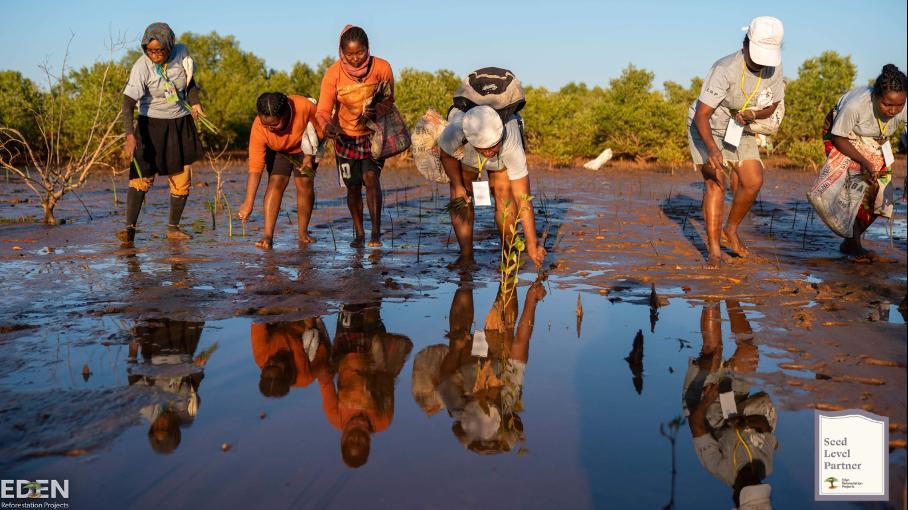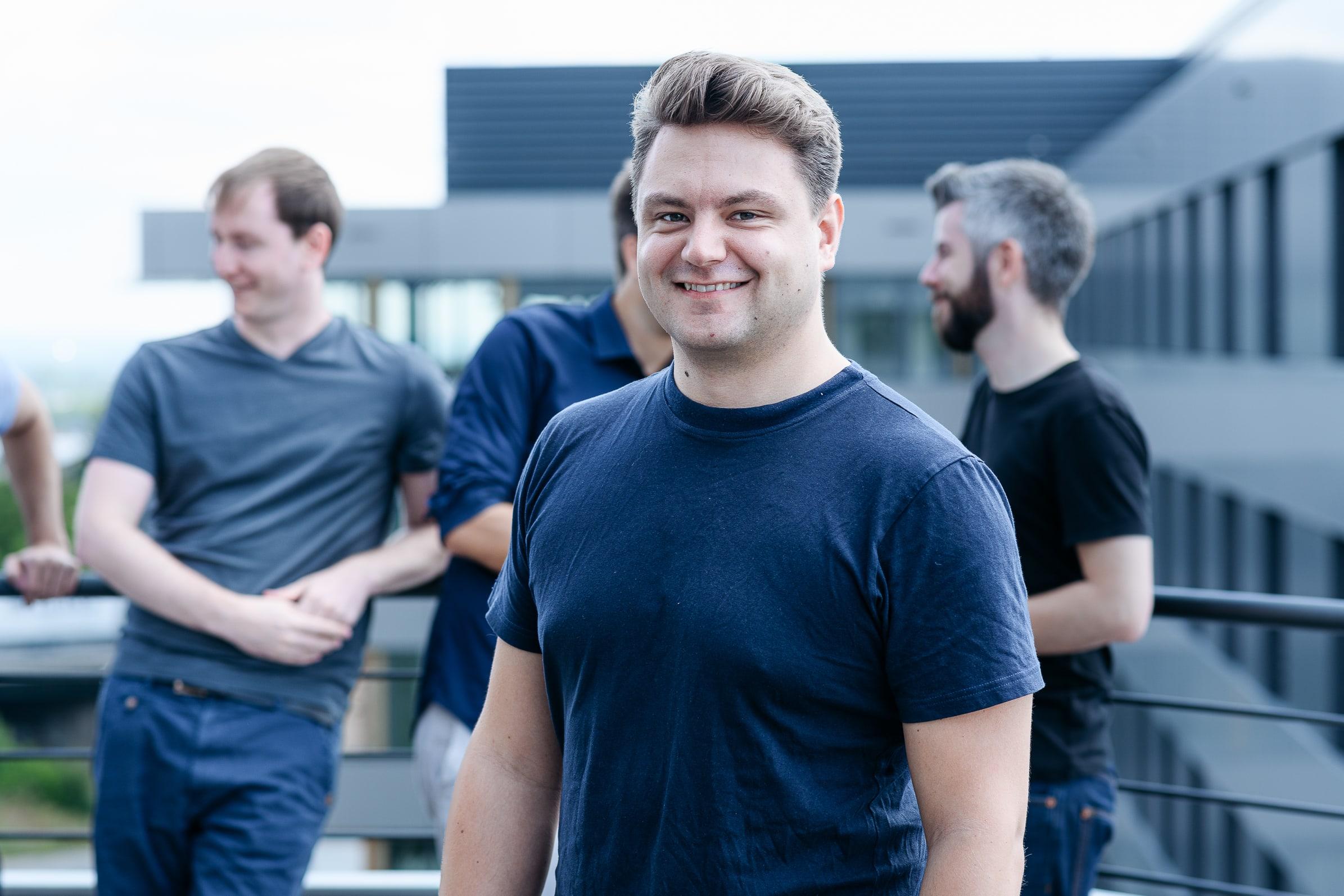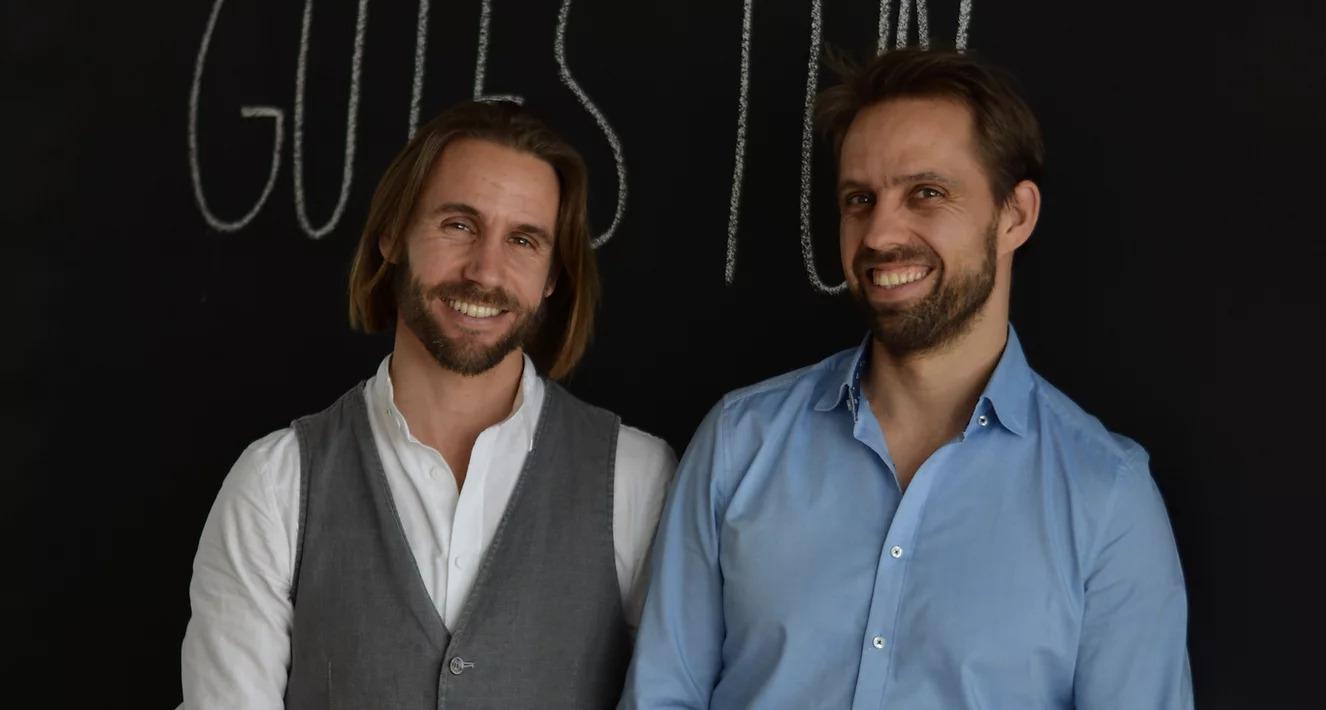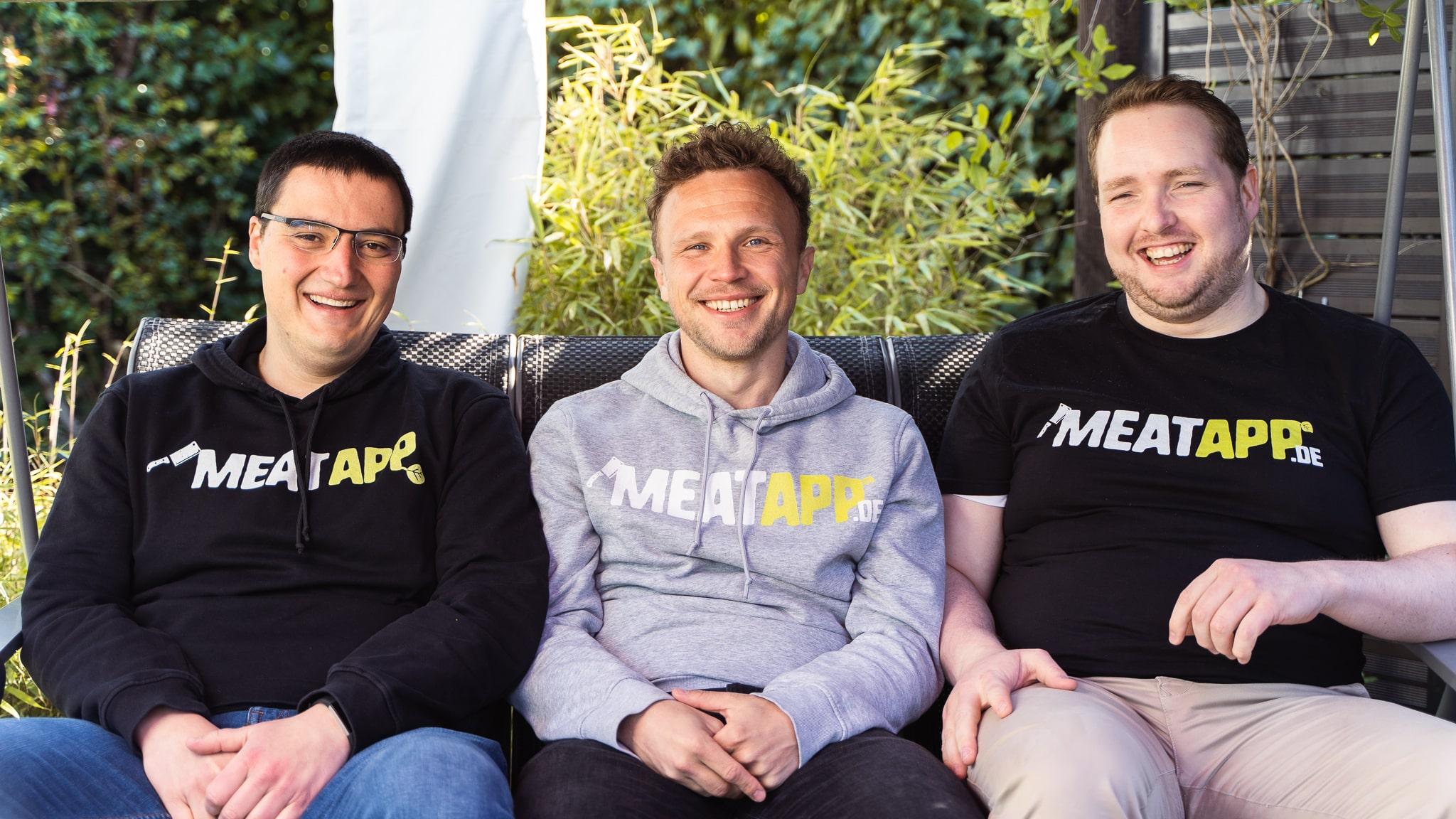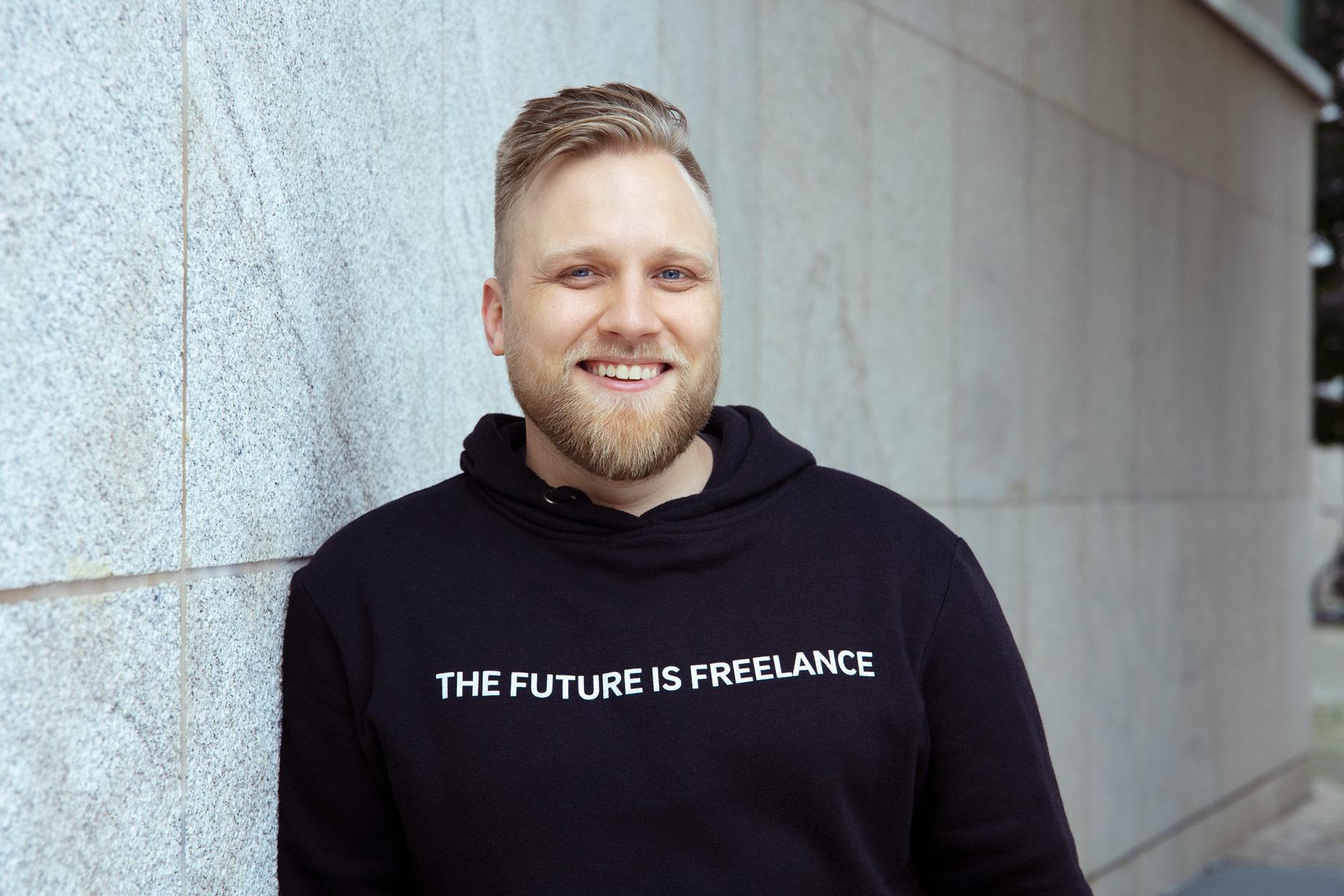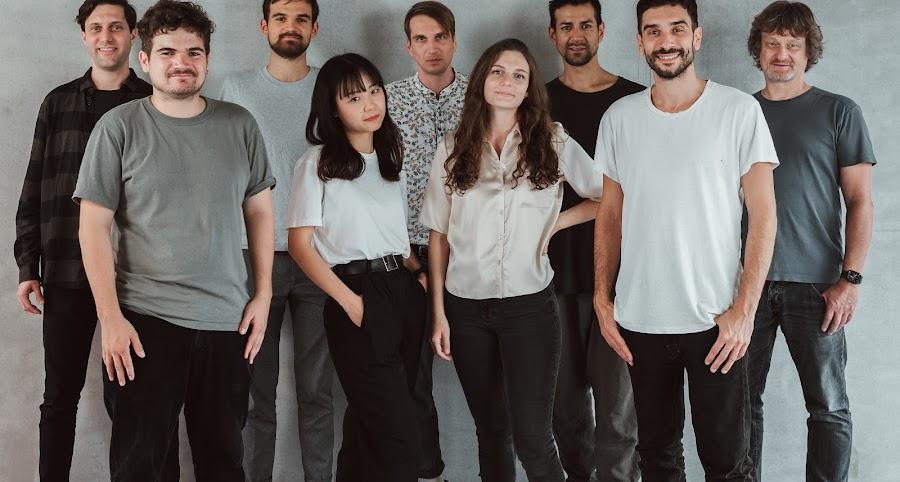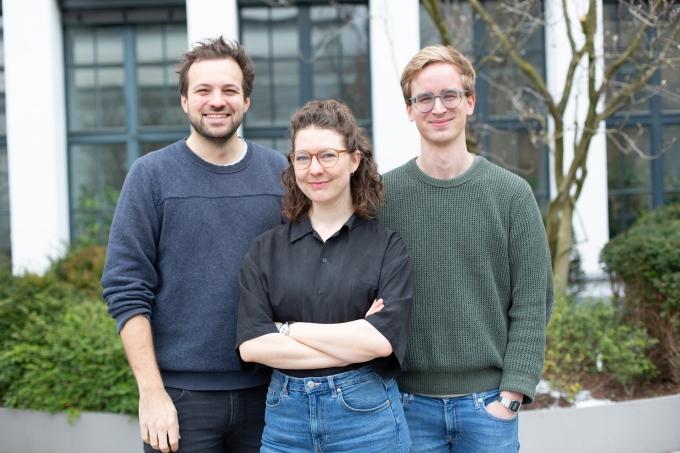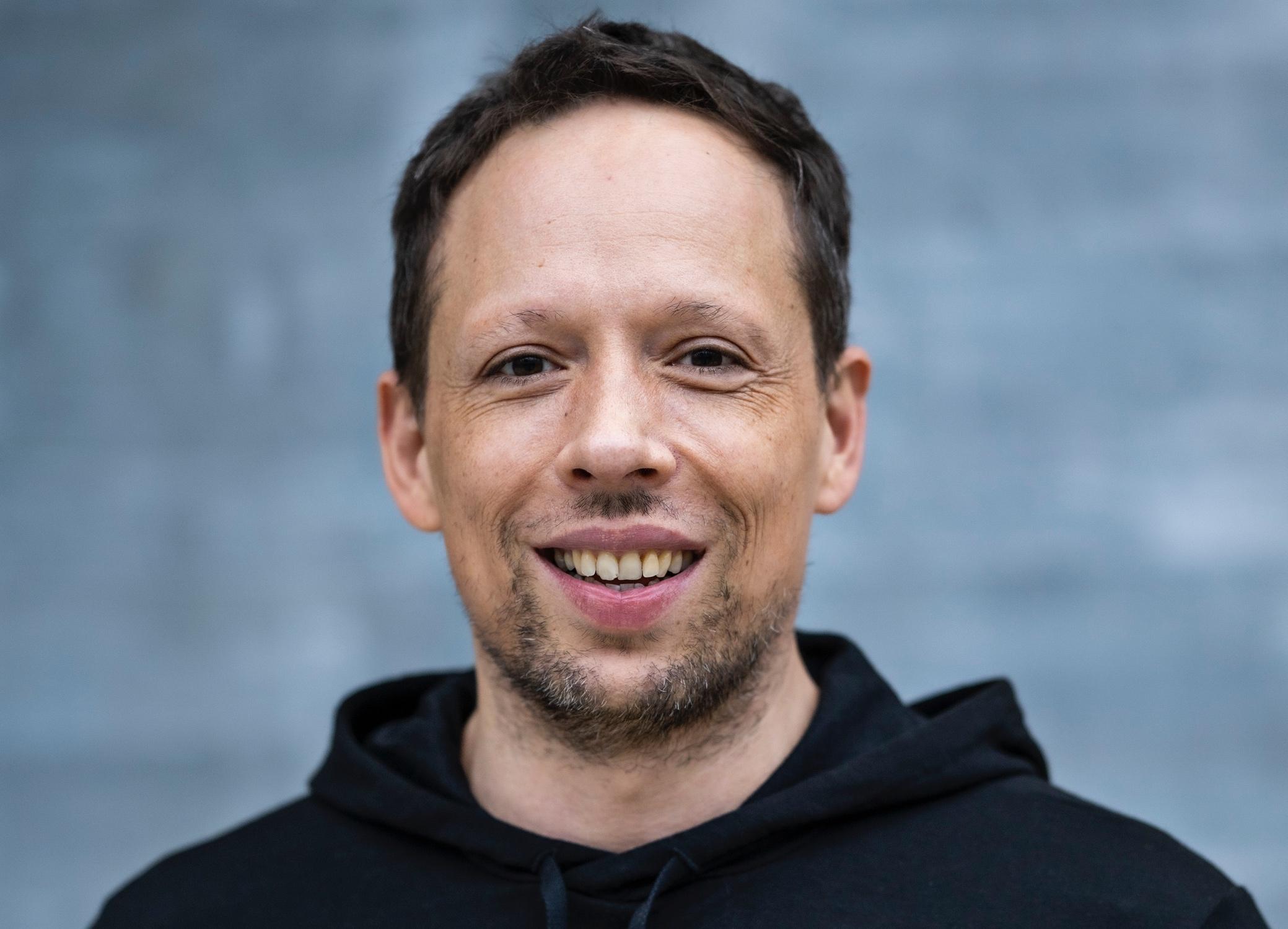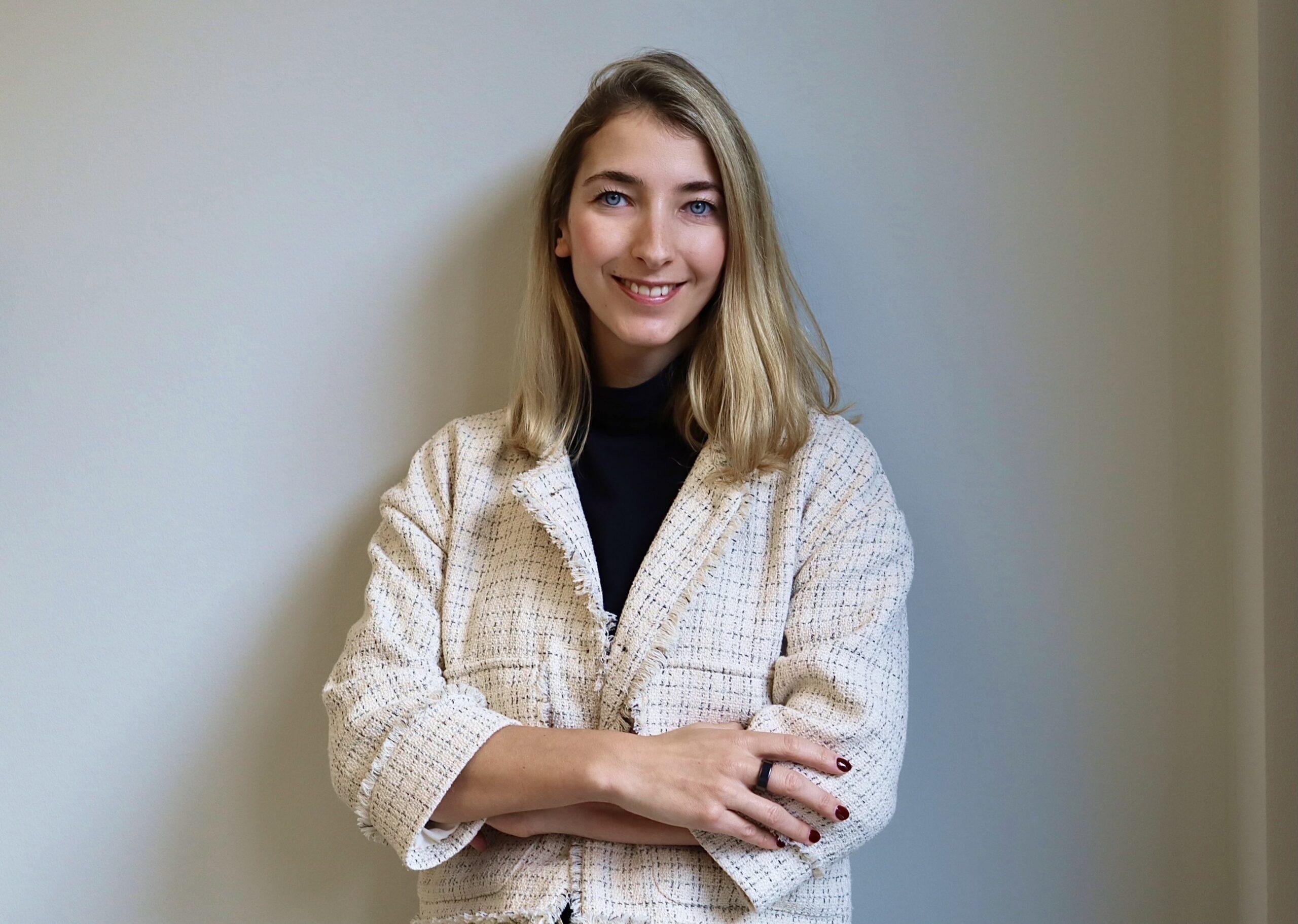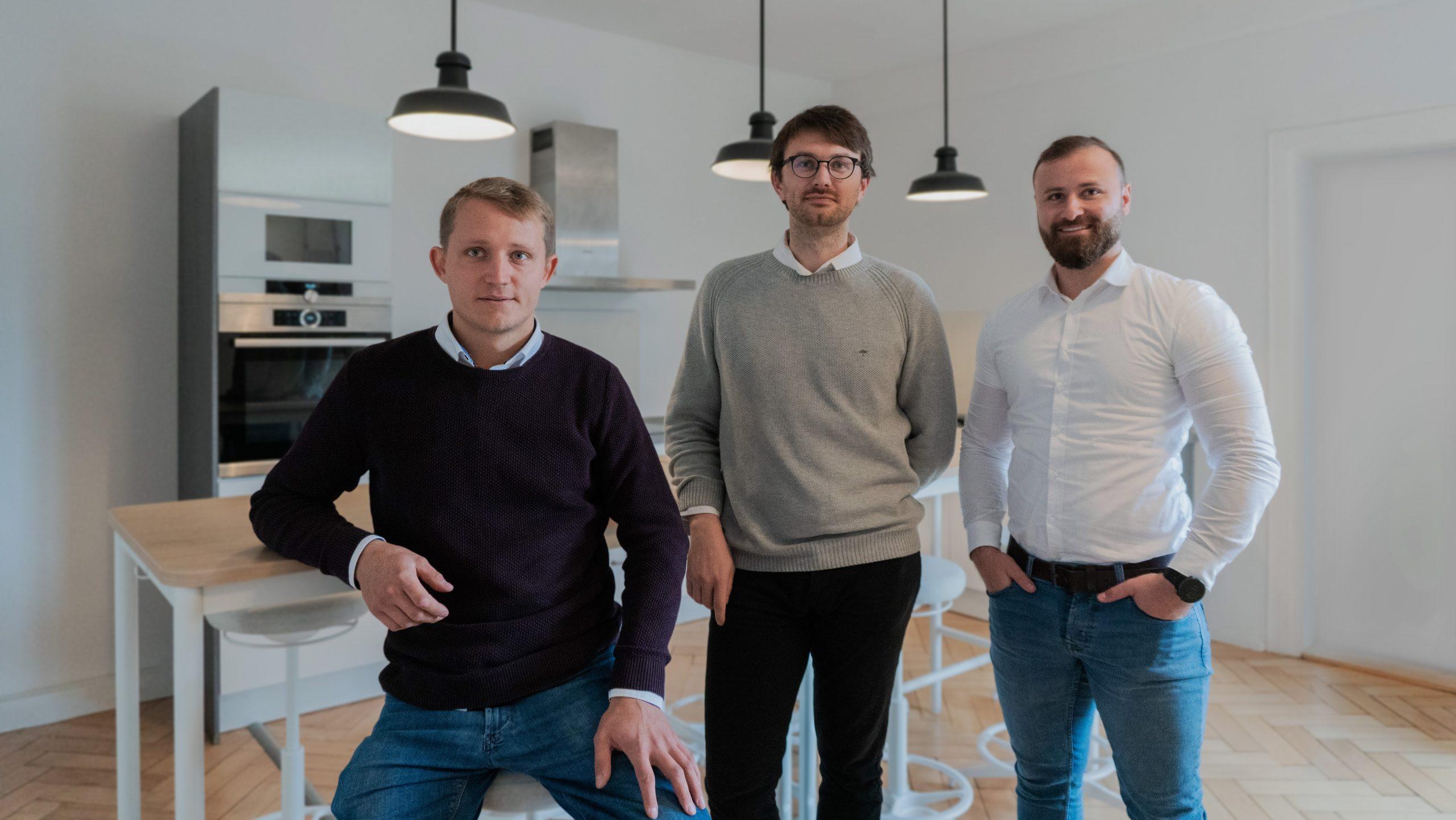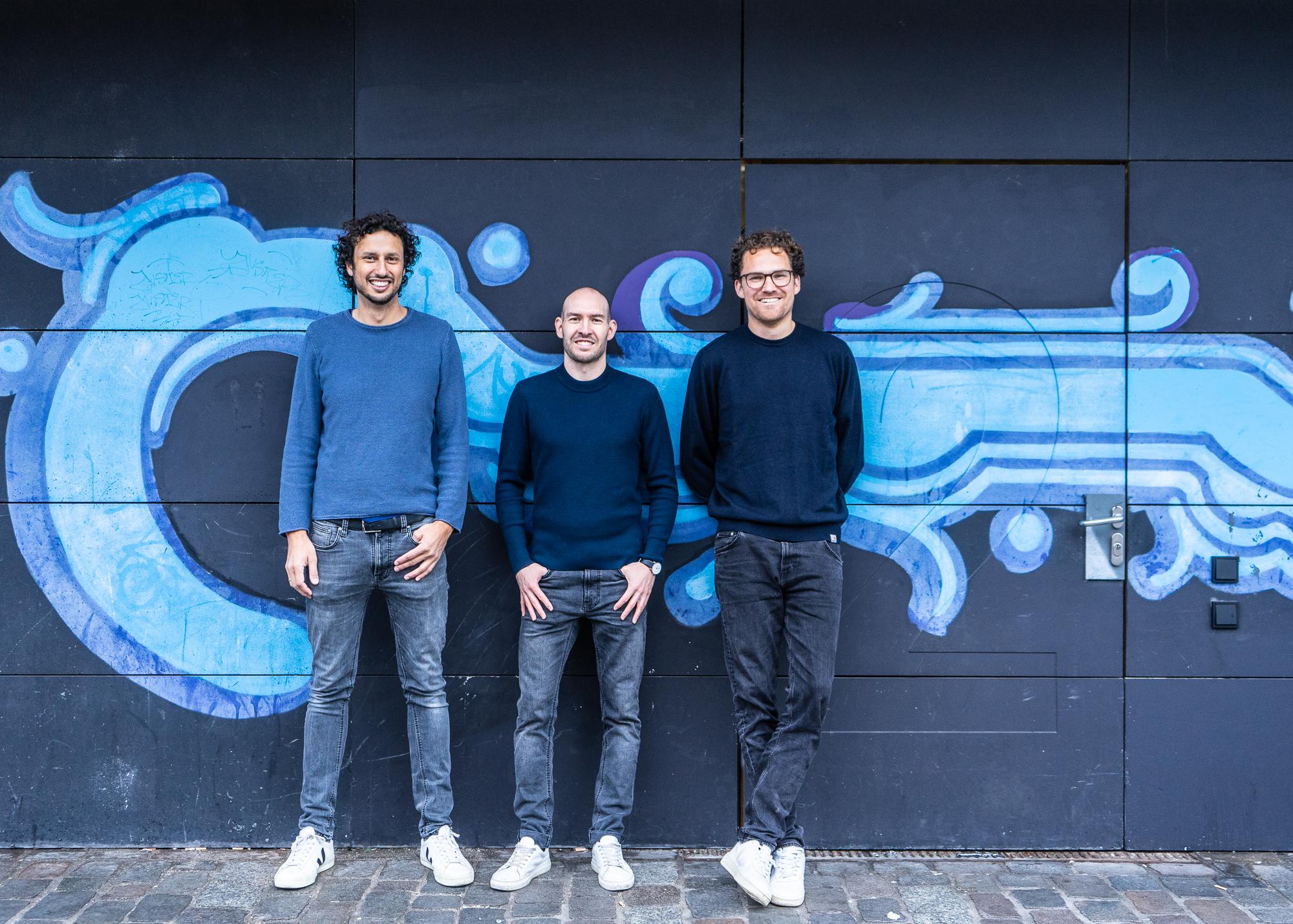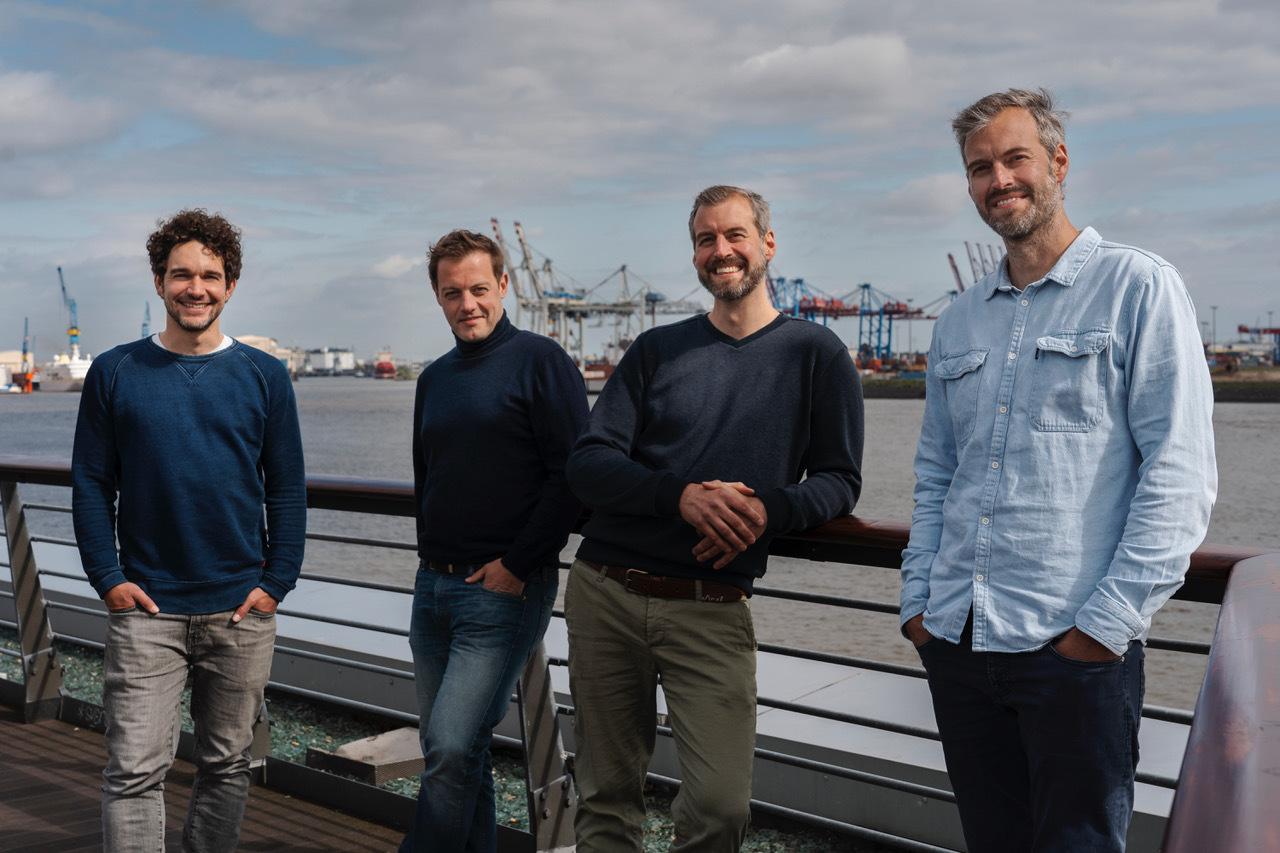"Getting the product to market quickly is the name of the game."
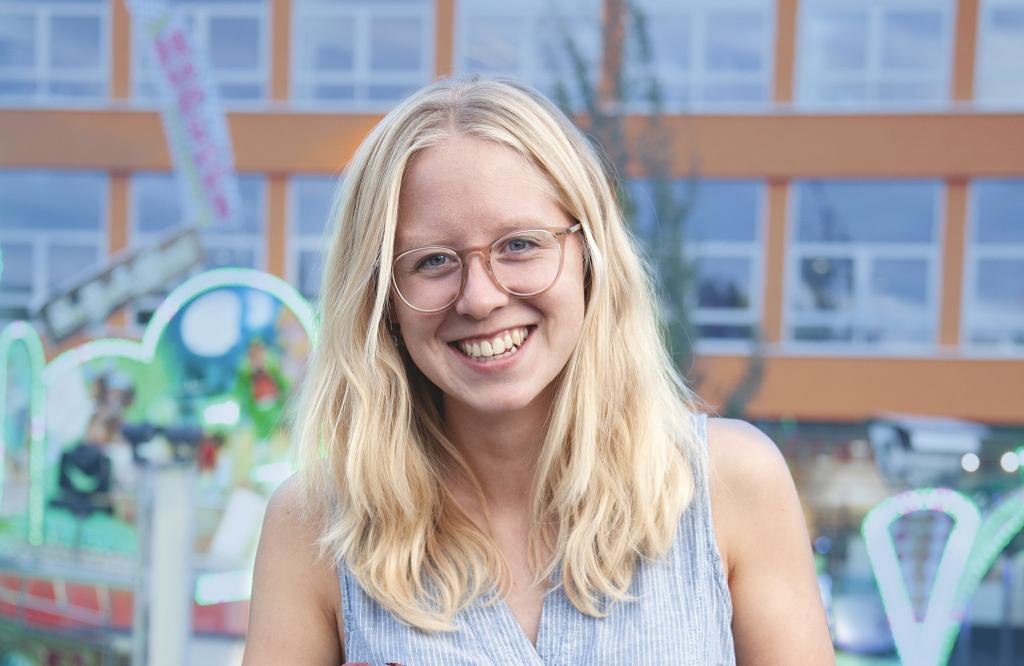
With Knistergrill, Carolin Kunert has developed a compact barbecue to take along. She explains in an interview for whom this can be practical - and why it should also be sustainable.
Barbecuing is one of the Germans' favorite pastimes. But those who don't want to grill in their own garden or only have a small balcony quickly have a problem with a charcoal grill. Carolin Kunert wants to have found an answer for them. The Knistergrill should fix it, she says.
How did you come up with the idea for Knistergrill?

I worked as an industrial designer for various agencies and companies. During that time I realized that I wanted to have more influence on production conditions, the production location and the quality of the products. However, I also didn't want to set up a small manufactory, but to produce sustainable consumer goods on a large scale, suitable for the masses. The fact that it became a grill is probably related to my studies. In the third semester of 2013, we had a metal construction project where I built a grill that could be mounted on the luggage rack. The idea then fell asleep for a few years until I did a semester abroad in Denmark in the winter of 2017 and my roommate took me to a Startup Weekend hackathon. I pitched my idea of a portable grill and worked on it with a team of two other people all weekend. In the end, we even won Startup Weekend and that was then the starting signal for Knistergrill.
January 2018 the others left your team, why did you continue?
Thanks to the feedback from many people and also winning the Hackerton, I was 100% convinced of the product and wanted to hit the ground running. For me, it was also the perfect time to start up. I was done with my studies and only had to write my bachelor thesis, which I then also wrote about Knistergrill.
Did you ever regret the decision to continue after the other team members left?
It was demotivating and scary to be all alone at the beginning. I pulled them along for a few weeks and tried to motivate them, but they realized that they couldn't keep up with my energy for the project. I definitely didn't regret it. After I knew where I stood, I just went it alone and launched a Kickstarter campaign after only 3 months and even shipped the first products shortly after.
What was it like for you to start up on your own?
While building the company, I was still looking for "the perfect co-founder" during the first two years. The start-up world tells you that you should found at least two people in order to get an investment or funding, for example. As a solo founder, all of this is much more difficult or almost impossible. A lot of time and energy went into it, but unfortunately I didn't find him/her. The more advanced the company is, the more difficult it is to get the new co-founder into your cap table. After the first seed round at the latest, it is almost impossible to get co-founders involved in real terms. However, there are many advantages to founding alone. For example, you can make decisions faster and don't waste countless hours with shareholder agreements and at the notary. If you bring someone on board, it has to be a 100%ig fit - any doubt or bad gut feeling is a sign that it's not the perfect co-founder. I'd rather have no co-founder than someone who isn't a perfect fit. Today, my startup employs 5 people and 6 close freelancers.
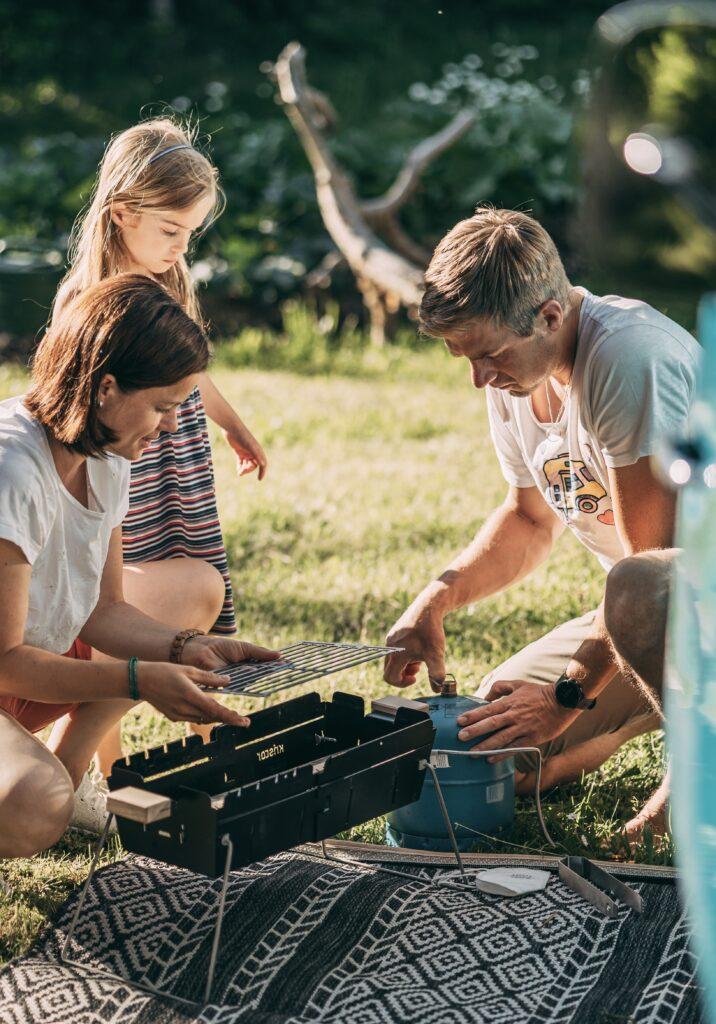
How is the Knistergrill different from other grills?
We are the bottom line grill that offers the best mobile grilling experience. Starting with the food and grill quality to the different applications of the grill. It's easy to take with you on your bike or use at home on your balcony. What makes it special is that you can extend the grill to twice its size and everything is 100% made in Germany.
You advertise sustainability on your website. However, in itself, neither burning gas nor coal is sustainable.
Not consuming would always be more sustainable than consuming per se. In this industry, we try to be the most sustainable grill with everything we can. The biggest impact for us is transportation. We have several warehouses and suppliers throughout Germany to keep transport distances as short as possible. A grill travels a maximum of 400 kilometers for us, and no one else can do that. In addition, the grill has a lifetime of up to 20 years. If something breaks, we will reimburse you for spare parts. Social sustainability also plays a role for us. We work with two subsidized workshops near Munich and know the good working conditions at each of our German producers.
Where do you see yourself in three years?
In three years, I see us as an outdoor brand with a larger product portfolio and with everything about eating, being on the road and outdoors with the connection between city and nature. And the crackling grill should be distributed throughout Europe.
What has been your biggest challenge?
I've been through a lot of ups and downs: one day you're doing half a million in sales, and the next day all the supply chains break because of macroeconomic problems, pandemics, wars or supply embargoes. Going through these ups and downs and also standing alone in all the responsibility is still the biggest challenge. I try to stay very calm in crisis situations, not to take problems personally, to take a few steps back and look at the whole thing from above.
What tips do you give to other founders?
It's incredibly important to work close to the customer and bring your product to market quickly. The product should get the fit quickly, not have years of development behind it until you then realize that no one needs it. The second thing is, start sales as early as you can. Sales sucks and is difficult at first and you will fall down and get rejections a lot, but if you manage to get sales, that is the best validation you have. I contend that if you made X amount as a consumer brand through fundraising, you could have made three times that amount in the same amount of time through sales. The last tip is to look at startup as a journey and not always take everything personally.
Thank you very much for the interview!
Personal details: Carolin Kunert studied industrial design and founded her start-up Knistergrill in 2018. She is responsible for management issues, product development and sales with large retail chains.
FYI: English edition available
Hello my friend, have you been stranded on the German edition of Startbase? At least your browser tells us, that you do not speak German - so maybe you would like to switch to the English edition instead?
FYI: Deutsche Edition verfügbar
Hallo mein Freund, du befindest dich auf der Englischen Edition der Startbase und laut deinem Browser sprichst du eigentlich auch Deutsch. Magst du die Sprache wechseln?
